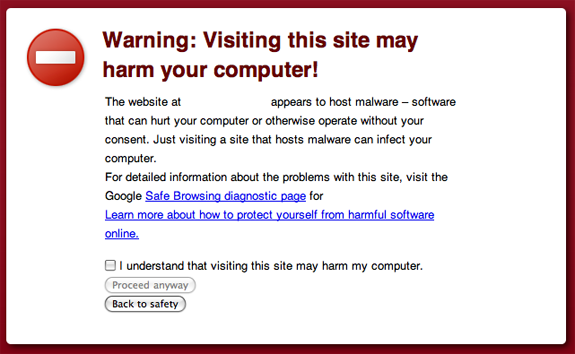 NEWS
NEWS
 NEWS
NEWS
 NEWS
NEWS
![]() There’s been a spate of high-profile hacks over the last month or so, with big names including Facebook, Twitter, Apple and Evernote all falling victim to malware. It might not be clear who is responsible for these attacks or how exactly they got away with it, but if there’s one thing we can take home from all of this it’s that no website should consider itself “safe” from attack.
There’s been a spate of high-profile hacks over the last month or so, with big names including Facebook, Twitter, Apple and Evernote all falling victim to malware. It might not be clear who is responsible for these attacks or how exactly they got away with it, but if there’s one thing we can take home from all of this it’s that no website should consider itself “safe” from attack.
While the likes of Apple and Facebook steal the headlines whenever they fall victim to a hack, these companies rarely suffer any long-term damage. Security breaches are nearly always spotted within hours, and they have the technology and resources to quickly recover from them without suffering any embarrassing data loss. But unfortunately that isn’t always so in the case of the “other 99%” who get hacked – those websites ran by smaller businesses and individuals who lack the resources and expertise needed for a quick recovery.
So it’s good to know that a helping hand has finally arrived, in the form of a new Google series called “Help for Hacked Sites“, launched earlier this week.
“Every day, cybercriminals compromise thousands of websites. Hacks are often invisible to users, yet remain harmful to anyone viewing the page — including the site owner,” writes Google on the new Help for Hacked Sites page.
“For example, unbeknownst to the site owner, the hacker may have infected their site with harmful code, which in turn can record keystrokes on visitor’s computers, stealing login credentials for online banking or financial transactions.”
Help for Hacked Websites has been designed as the complete guide for any webmaster who comes across the notorious old “This site may harm your computer” message. It covers a number of topics to help webmasters, including an explanation of why websites are hacked, detailed information on common malwares and spam, a step-by-step guide explaining how to recover a hacked website, preventative tips and more. Altogether, the series has more than 80 minutes of video and dozens of articles to read through.
It’s useful stuff, but even so not everyone will be able to recover a hacked site just by following Google’s tips. Some of the steps involved get pretty complex, and so Google advises site owners to seek expert help or visit the Webmaster Forum for additional help if they’re unsure.
“While we attempt to outline the necessary steps in recovery, each task remains fairly difficult for site owners unless they have advanced knowledge of system administrator commands and experience with source code,” Google warns.
The following video provides a short overview of Google’s Help for Hacked Sites series, explaining why hacks take place and the best options for recovery.
THANK YOU